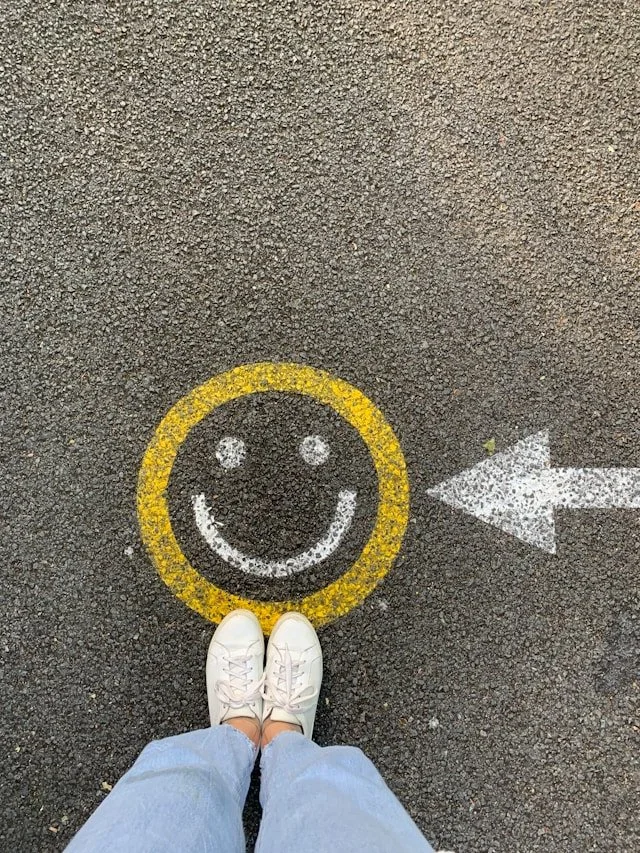Who would I be if I was happy? Trevin Wax warns us, “Many young people are increasingly drawn to establishing and expressing their identities through their psychological maladies.”
Wherever he leads, I’ll go: Glenna Marshall shares a story I bet you might identify with, “In young, untried faith, I nearly invited him to test me, telling him in a long, journaled prayer that wherever he led, I would most certainly go. I banked on my obedience. I would be stalwart, no matter what came. But life came. And the Lord led me to places I longed to escape from: decades of infertility, disease, chronic pain that battered my body for years on end.”
This Week's Recommendations
Britain’s loneliest sheep: Stephen Steele begins, “A high-profile new resident arrived in South West Scotland recently – a ewe once known as ‘Britain’s Loneliest Sheep’. Fiona, as she has been named, was rescued after being stranded for more than two years at the foot of cliffs in the Scottish Highlands.”
When the walk becomes a crawl: David Powlison exhorts us, “The key to getting a long view of sanctification is to understand direction. What matters most is not the distance you’ve covered. It’s not the speed you’re going. It’s not how long you’ve been a Christian. It’s the direction you’re heading.”
The Long Journey of Self-Knowledge in a Culture of Confusion
“We are currently experiencing the largest and fastest religious shift in US history. It is greater than the First and Second Great Awakening and every revival in our country combined...but in the opposite direction.” This is the conclusion of the largest and most comprehensive study of dechurching in America by sociologists Ryan Burge and Paul Djupe. In The Great DeChurching, pastors Jim Davis and Michael Graham unpack why and how over the past twenty-five years, forty million of those who formerly attended church no longer do so.
This Week's Recommendations
Why I’m not an exvangelical: Carey Nieuwhof explains, “I, too, am tired of the abuse, corruption, arrogance, shallow thinking, anti-intellectualism, partisanship, and politicization of the Christian message. I’m done with the racism, toxic culture, and the abuse of power we see again and again.”
What do Mormons believe about marriage? Liesl Counterman explains, “In Mormonism, the bare minimum entrance requirement to eternal life is baptism, but the way to reach the highest heaven is through marriage.”
This Week's Recommendations
The danger of self-soothing through social media: Trevin Wax warns, “Just as perusing WebMD engenders false confidence when we quickly diagnose ourselves or our family members after a cursory look at medical symptoms, we’ve become overly trusting of the self-help gurus and self-proclaimed therapists online who give advice about various psychological maladies.”
The epidemic of 2012 before the pandemic of 2020: Eric Geiger, “There has been a lot of talk about the pandemic’s impact on mental health deterioration. Stay at home orders and social distancing reduced both time with others and physical exercise, which adversely impacted mental health.
The gods fight for our devotion
The competition for your devotion is fierce.
I’ve had the opportunity to visit India four times. One of the first things that strikes you as a Westerner is how different religious devotion manifests in this country. In this Hindu nation, the competition for devotion is manifested in the temples—some lavish, some simple—erected to the 33 million Hindu gods. The gods scuttle for devotion based on geographic region, power, and personality.
This Week's Recommendations
The top ten fears in America: Chapman University finds, “The top 10 fears in the 2023 survey suggest that Americans’ fears center on five main topics: corruption in government (number 1), economic concerns (numbers 2 & 10), war and terror (numbers 3, 4, 8, & 9), the harming or death of loved ones (numbers 4 & 5), and pollution of drinking water (number 7).”
As the outer is peeled away: Tim Challies reflects, “In the past few years, I have watched a number of dear friends grapple with terrible and ultimately terminal illnesses. I have watched people I only ever knew to be whole and strong fade until they were broken and weak.
This Week's Recommendations
Finding rest in God’s eternality: Lara d’Entremont reflects, “On days like this, I long for eternal strength. I wish I never became weak or faint. I wish I could stay up into the late hours of the night finishing all these projects without taking a break. Sometimes I even try to push through, knowing I’ll pay for it that night as I try to fall asleep with a racing mind and throbbing feet.”
Is the Bible pro-life? Scott Klusendorf begins, “Abortion-choice advocates with the Religious Coalition for Reproductive Choice and Planned Parenthood Federation of America contend that the Bible is silent on abortion, and that none of the Scriptures traditionally cited by pro-life advocates establishes the humanity of the unborn.
This Week's Recommendations
Why are people so fascinated with ‘lost’ books of the Bible? Michael Kruger takes this one on. “In the Western world, particularly in America, there is a perpetual distrust of authority, particularly religious authority. Jenkins writes: ‘Also quintessentially American is the distrust of external authorities such as the clergy, and the sense that through their affected learning, the priests have hidden the truth from the people.’”
Odd one out: Another fun game by Google Arts
This Week's Recommendations
What are non-Christians’ view of God? Barna reports, “While a significant 30 percent of non-Christians who are not spiritually open is simply unsure what they believe about God, about half (47%) firmly do not believe there is a God or higher power.”
How the customer review changed the world: Samuel James nails the impact of democratization on the contemporary world, “The word for this is democratization. Democratization is literally the process of democracy, or the process by which democracy emerges.














